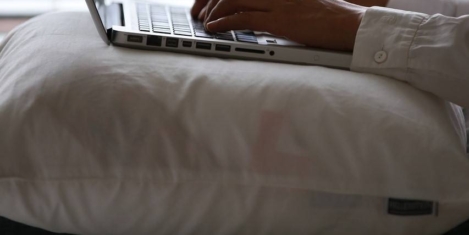June 4, 2018
Two-thirds of employers believe agency and gig workers should be able to request a stable employment contract
 Two-thirds of employers (67 percent) back the introduction of a new right for agency workers and zero-hours contract workers to request a stable contract, according to the Chartered Institute of Personnel and Development. The findings, which form part of the CIPD’s response to the Government’s consultation on the Taylor Review of Modern Working Practices, are based on a survey of 1,000 employers. The survey found that 67 percent of respondents said they support the right to request a stable contract, which would potentially allow agency workers to request a permanent contract of employment and zero-hours contract workers to request regular or guaranteed hours.The CIPD believes the right to request should be available to people who have 12 months of continuous service with one organisation, a suggestion supported by 41 percent of employers. 32 percent of respondents supported a period of at least six months and 20 percent were in favour of at least three months. (more…)
Two-thirds of employers (67 percent) back the introduction of a new right for agency workers and zero-hours contract workers to request a stable contract, according to the Chartered Institute of Personnel and Development. The findings, which form part of the CIPD’s response to the Government’s consultation on the Taylor Review of Modern Working Practices, are based on a survey of 1,000 employers. The survey found that 67 percent of respondents said they support the right to request a stable contract, which would potentially allow agency workers to request a permanent contract of employment and zero-hours contract workers to request regular or guaranteed hours.The CIPD believes the right to request should be available to people who have 12 months of continuous service with one organisation, a suggestion supported by 41 percent of employers. 32 percent of respondents supported a period of at least six months and 20 percent were in favour of at least three months. (more…)








 More than 6 million UK adults are already self-employed or working as a contractor in the so-called gig economy, with a further 6 percent of currently full-time professionals looking to make the transition this year. New research of more than 2,000 UK adults commissioned by
More than 6 million UK adults are already self-employed or working as a contractor in the so-called gig economy, with a further 6 percent of currently full-time professionals looking to make the transition this year. New research of more than 2,000 UK adults commissioned by 




 One in four workers (28 percent) would move jobs if they weren’t allowed to work from home, increasing to nearly half (45 percent) of millennial workers. Yet while two thirds of UK employees (65 percent) can work from home, 35 percent are still not given the option of working remotely.
One in four workers (28 percent) would move jobs if they weren’t allowed to work from home, increasing to nearly half (45 percent) of millennial workers. Yet while two thirds of UK employees (65 percent) can work from home, 35 percent are still not given the option of working remotely. 




 Central London commercial offices under offers are at the highest point in the last 12 months and take-up is ahead of 2017 levels compared with this point last year, new data from CBRE has shown. Central London office take-up for April 2018 stood at 547,900 sq ft, largely driven by pre-letting activity. Office take-up for the year to the end April 2018 was 4 percent higher than the corresponding period in 2017, standing at 3.4m sq ft. Take-up was boosted by 139,600 sq ft of pre-letting activity. Over the last 12 months, the business services sector has represented the largest proportion of take-up at 32 percent, driven by a large number of deals to flexible office providers. Take-up in April was dominated by the creative industries sector, accounting for 44 percent of take-up. The banking and finance sector (26 percent) and the business services sector (21 percent) also represented notable proportions of take-up in April.
Central London commercial offices under offers are at the highest point in the last 12 months and take-up is ahead of 2017 levels compared with this point last year, new data from CBRE has shown. Central London office take-up for April 2018 stood at 547,900 sq ft, largely driven by pre-letting activity. Office take-up for the year to the end April 2018 was 4 percent higher than the corresponding period in 2017, standing at 3.4m sq ft. Take-up was boosted by 139,600 sq ft of pre-letting activity. Over the last 12 months, the business services sector has represented the largest proportion of take-up at 32 percent, driven by a large number of deals to flexible office providers. Take-up in April was dominated by the creative industries sector, accounting for 44 percent of take-up. The banking and finance sector (26 percent) and the business services sector (21 percent) also represented notable proportions of take-up in April.














May 30, 2018
Australia is leading the world in the adoption of activity based working
by Max Luff • Comment, Flexible working, Workplace design
(more…)